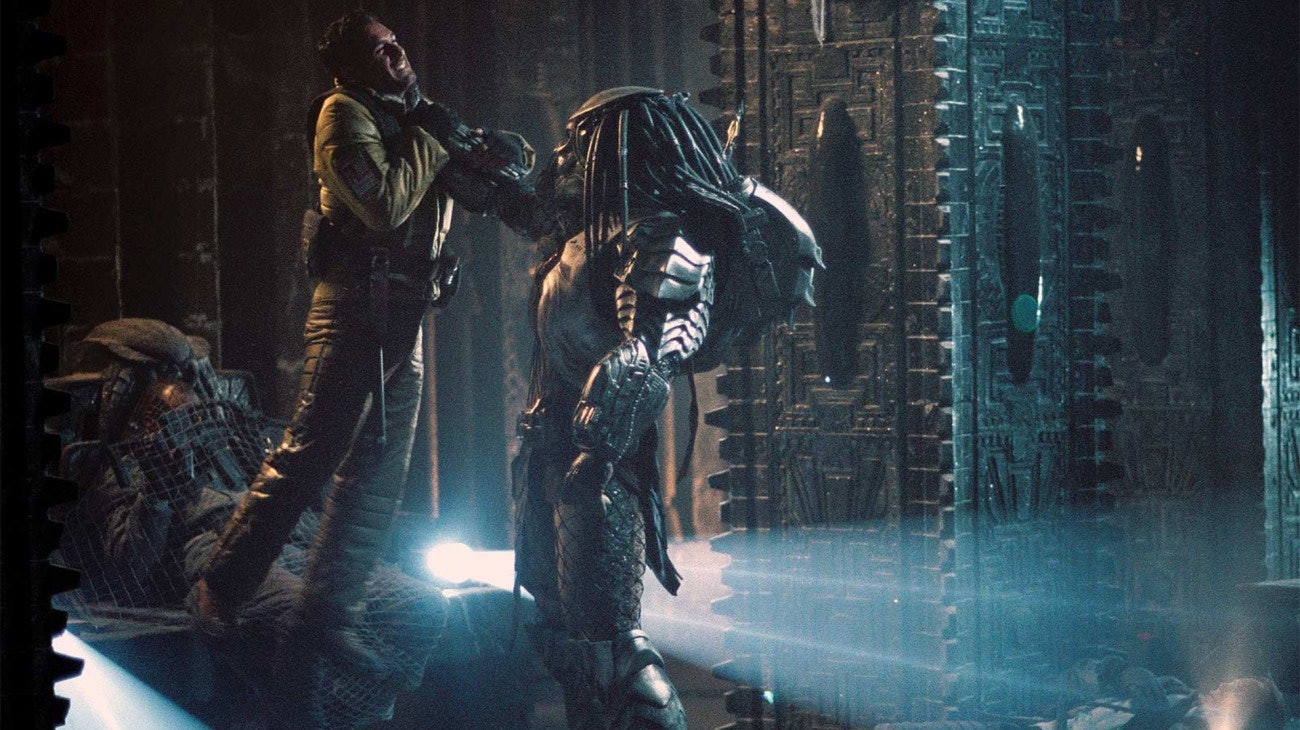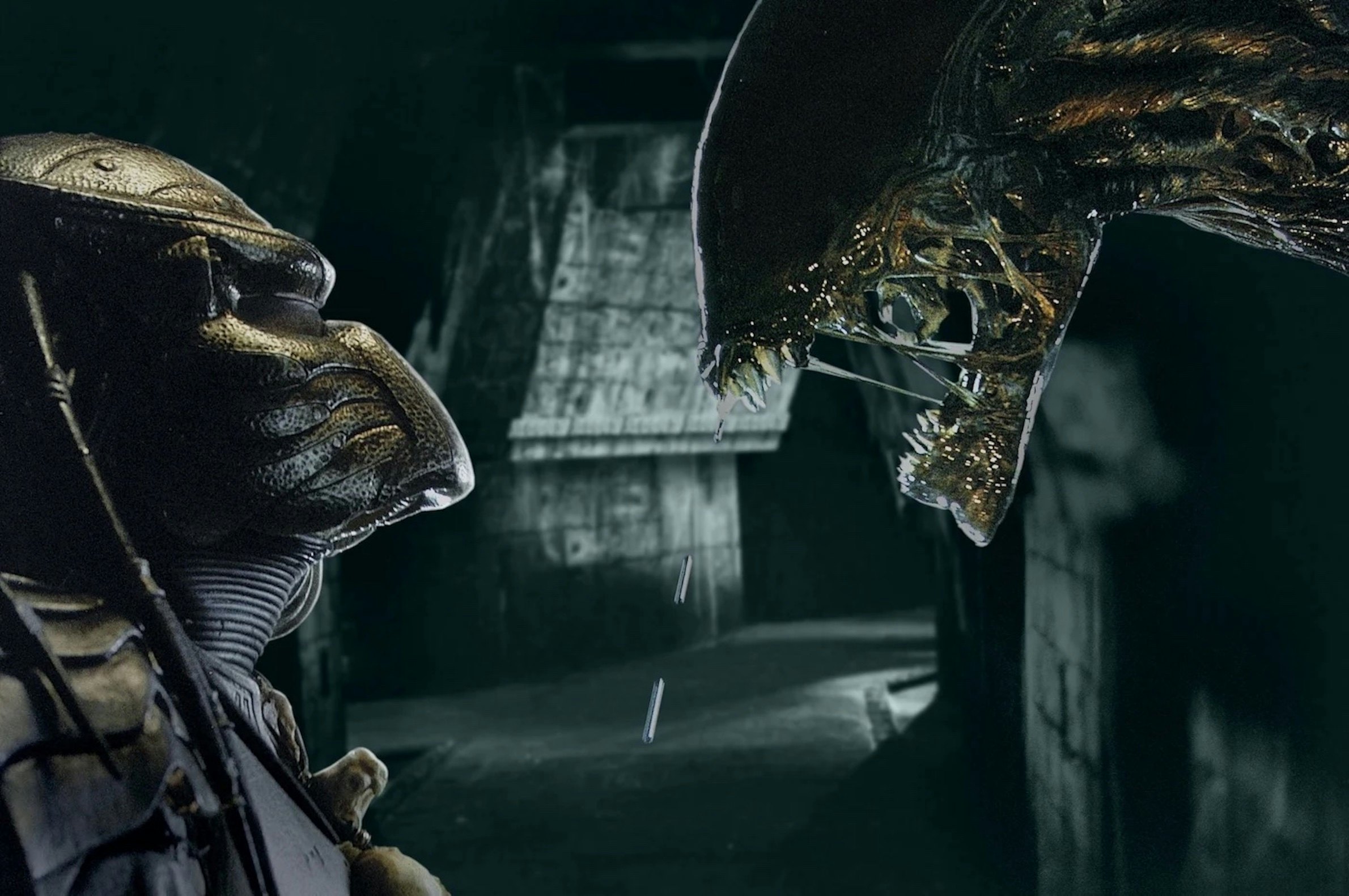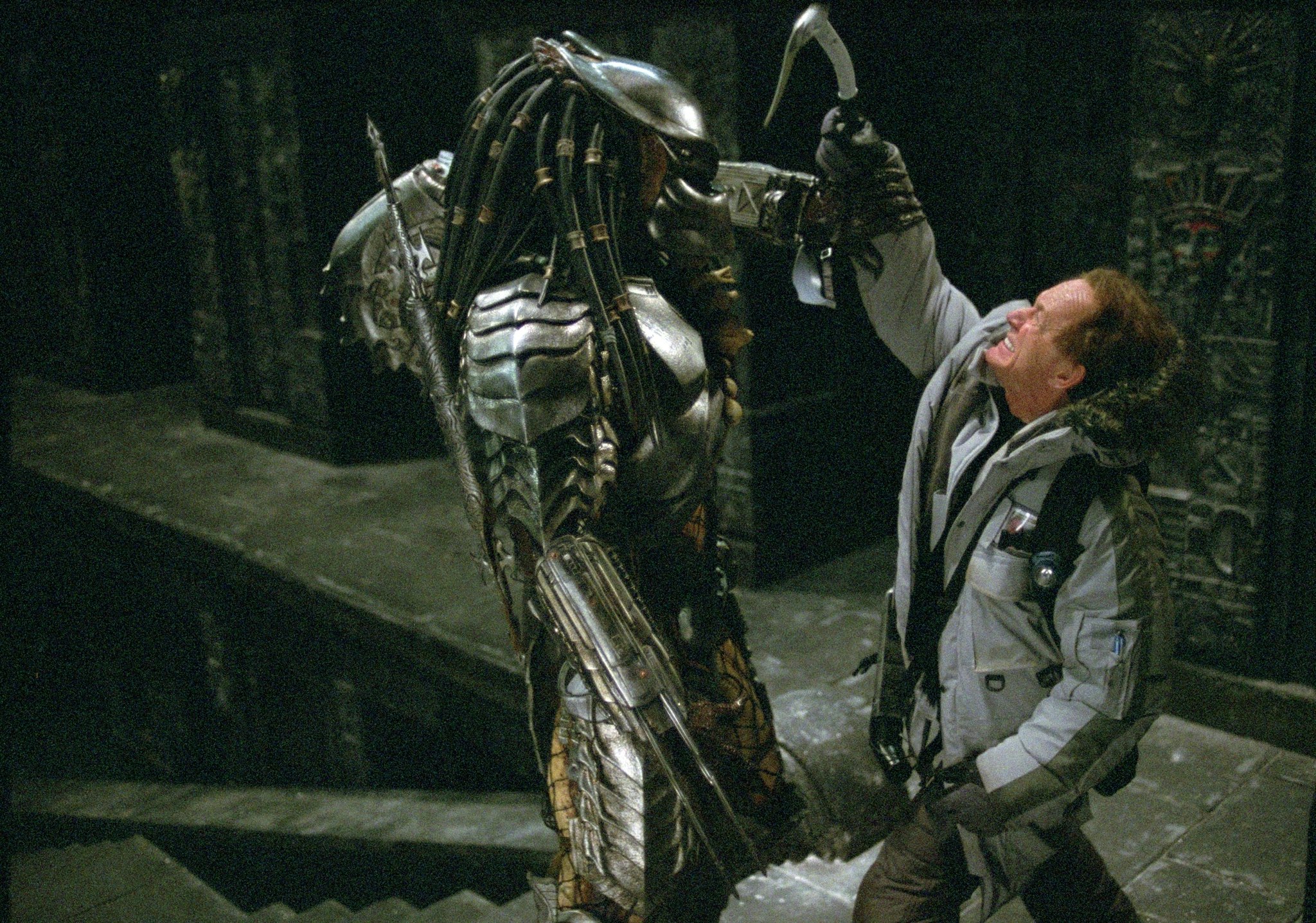
Making characters from different fictional universes fight each other is an idea as old as the concept of intellectual property. Frankenstein’s monster battled the Wolf-Man in 1943, King Kong vs. Godzilla hit theaters in 1962, and in the world of comic books it's been happening since DC and Marvel came into existence. But the idea of iconic 1980s monsters fighting each other is on another level of superfluity.
When Alien vs. Predator was released in 2004, it was treated with hostility from critics and suspicion from serious sci-fi fans, while being celebrated by the people the movie was actually for: readers of over-the-top comic books. Twenty years after its release, Alien vs. Predator seems quaint in its overwrought attempt to bridge two worlds. But it also holds up better than it should, and because of its commitment to the bit, it shouldn’t be considered the worst Alien movie by a longshot.
Alien vs. Predator began life as a provocative comic book crossover series published by Dark Horse Comics in 1989. At the time, Dark Horse had the comic book rights to several sci-fi properties. The early ‘90s were a time when some of the most beloved ‘80s sci-fi concepts were getting new content thanks to edgy comic books, most of which seemed more compelling than bland live-action sequels like 1990’s Predator 2 and 1992’s Alien 3.
Had Alien vs. Predator come out in 1994 instead of 2004, it might have been an even bigger hit than it was. But in 2004, the film was both ahead of the time when existing IP dominated the box office and behind the moment when such storylines were enthralling to comic book fans.
Technically a prequel to all the Alien movies and a sequel to the existing Predator films, the movie follows an expedition led by the mega-rich Charles Weyland (Lance Henriksen) to explore a strange pyramid buried beneath the Antarctic ice. It turns out there was an ancient culture centered around sacrificing people to Alien’s chest-bursting xenomorph, and when the Predators arrive to hunt the aliens, the human expedition is caught in the middle. The group’s biggest badass, Lex (Sanaa Lathan), becomes the defacto hero, but the movie is less about the humans than the monsters.

Alien vs. Predator delivers on its promise, although like so many movies of its type, you’ll wish the Aliens and Predators fight more. The ending teases an Alien/Predator hybrid, an awesome plot point you’ll wish occurred much earlier in the movie. It’s a film with a ton of great video game-esque action, all of which is a credit to the style that director Paul W. S. Anderson debuted in Resident Evil and would improve upon in Resident Evil: Apocalypse, which hit theaters the same year as Alien vs. Predator.
But what makes Alien vs. Predator such a great genre film is that it doesn’t care about being important. In 2012, Ridley Scott ambitiously rebooted the Alien mythos with Prometheus, a prequel that shares several of AvP’s ideas; an expedition that redefines the prehistory of Earth, the origins of the Weyland-Yutani corporation, and xenomorphs combining with other aliens to create new, terrifying hybrids. But while Scott treated these ideas with reverence and awe, Anderson presents everything like a ‘90s video game with the cheat codes activated.
That, to be clear, is a compliment. While the Alien franchise certainly benefits from the infusion of Scott’s auteur sensibilities, the results can be mixed. There’s no denying the perfection of the 1979 original, and Prometheus is Scott’s riskiest accidental masterpiece. But the Alien franchise doesn’t always need to aim so high. It also works perfectly well as a video game-y horror in the style of Resident Evil.

Yes, it’s refreshing that Fede Álvarez’s upcoming Alien: Romulus seems to share aesthetics with both the 1979 classic and the 1986 sequel, but between 2004 and 2024, everyone somehow decided that Alien movies are supposed to be high art. The Predator series was never burdened by this pretension, which is why Predators (2010), The Predator (2020), and Prey (2022) are all great in their own ways; we didn’t expect much from them in the first place. The series correctly understands itself as an underdog horror franchise, while the Alien franchise seems to think it's one step away from becoming part of the Louvre’s permanent collection.
Alien vs Predator dragged Aliens down into the gutter. Sure, the 1979 Alien is much better than 1987’s Predator, and pitting the Predators against the Aliens isn’t so much King Kong battling Godzilla as it is Austin Powers fighting Sherlock Holmes. But that’s the brilliance of all great mash-ups; they posit an equivalency regardless of whether it makes sense. The dream of Alien vs Predator was to make the crossover fun again, and for a moment, it worked.







